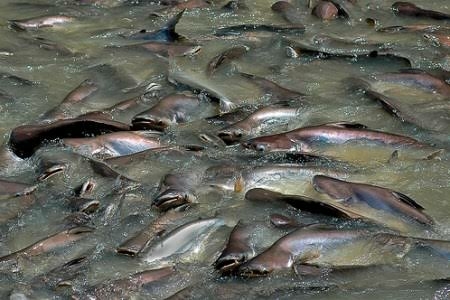The association’s chairman, Mr Sunday Onoja, said this in an interview with the News Agency of Nigeria (NAN) on Wednesday in Lagos.
The chairman said that inadequate budget outlay had led to the collapse of many fish farms apart from the rising cost of fish feed and unscrupulous activities of middle that frustrated fish farmers across Africa.
“In a recent webinar discussion, it has occurred to us that fish farmers are being frustrated in most African countries due to middlemen exploitation.
“We have also come to realise that the middlemen are not just the problem we face in the sector but inadequate budget planning of most fish farmers.
“Most farmers stock more juvenile than they can feed to maturity and before then they run at a loss.
“When they can no longer feed their stocks due to rising fish feed costs, they are forced to sell at a loss.
“Fish cultivation is a cycle that you must complete and in that completion you must not cut corners to get the desired outcome.
“When the farmer makes a loss due to cutting the cultivation process, next time when he wants to restock, the capital will not be enough,” the CAFAN chairman told NAN.
Onoja said fish farmers need to understand the dynamics of pricing their produce in line with operational cost.
He said that they must factor in all the necessary expenditure before tagging a price to their produce in order to break even.
“It is not necessarily the issue of rising feed costs that is increasing the cost of operations for local farmers but inadequate planning on their part.
“If the cost of feed goes up, ultimately the price of fish will go up, farmers need to understand the dynamics of this calculation to break even.
“If the farmer does not follow the schedule of expenditure alongside the cost of feed, he will have problems.
“It is not the cost of operation that is the problem but inadequate planning. No farmer should say he is being frustrated out of fish farming, it is him not planning well.
“To feed a kilogramme of fish, the farmer spends nothing less than N900, the cost of power to run the farm in six months costs N50,000.
“The cost of maintenance of the farm also cost a lot aside buying the stock and the feed. The farmer must factor all these into cost of operations before selling.
“This way poultry farmers can break even and still remain relevant in the industry. Poultry farmers need enough financial management and planning to get it right,” Onoja said.

















Discussion about this post